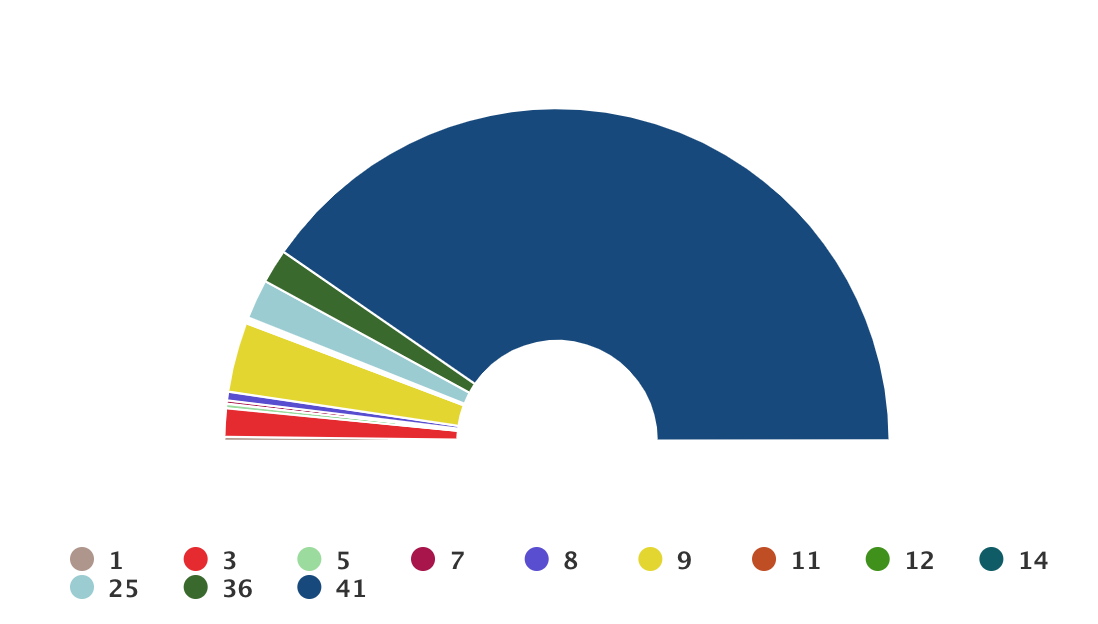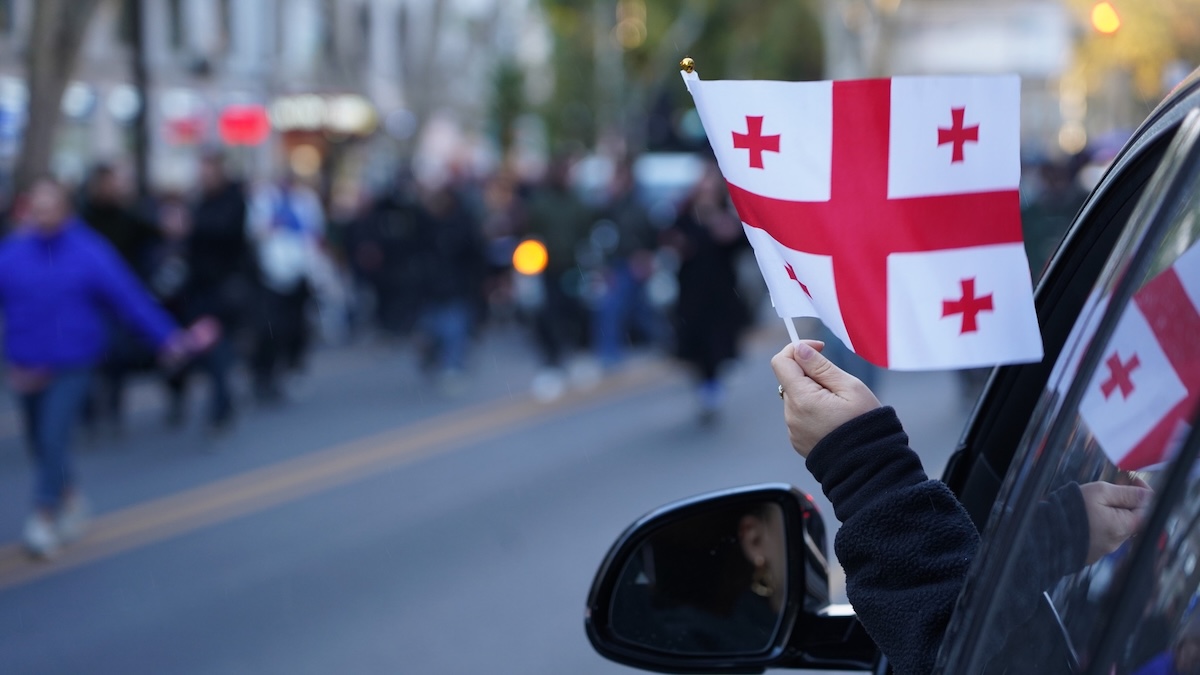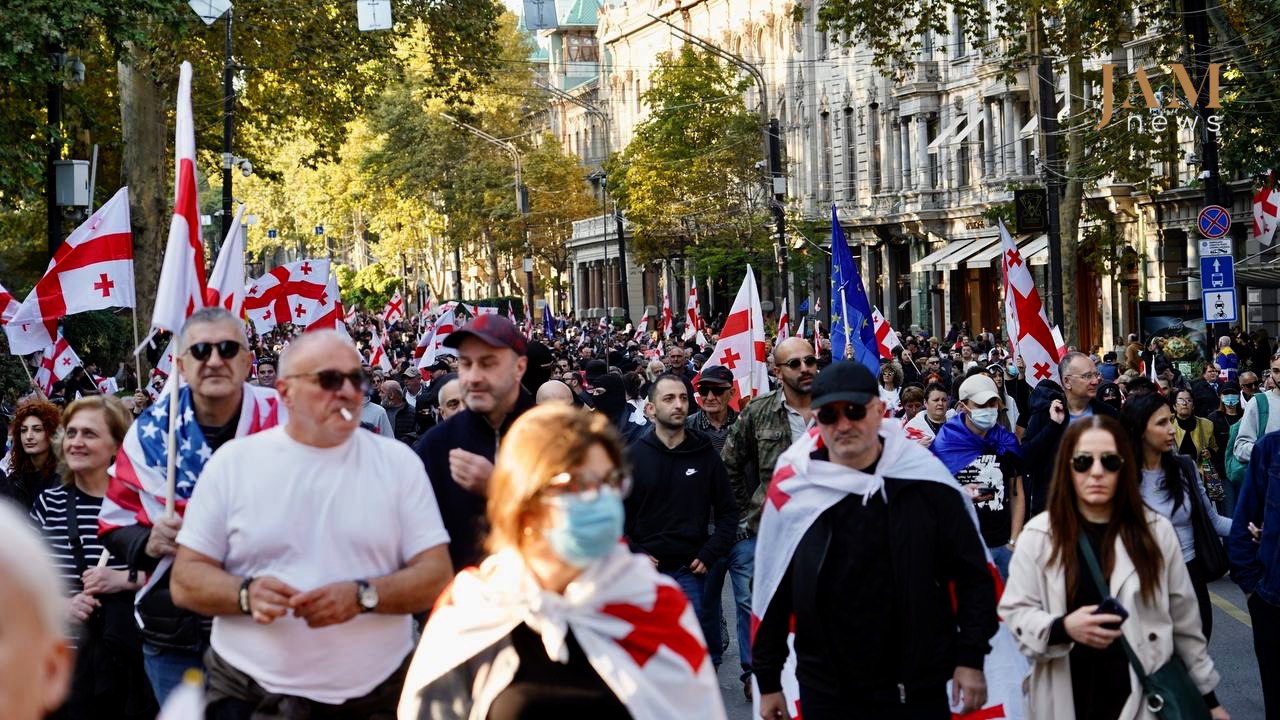Elections and a failed revolution: Georgia’s new political crisis?
4 October elections in Georgia
On 4 October, Georgia held municipal elections, once again placing the country at the centre of a political crisis.
A mass anti-government protest that took place on Rustaveli Avenue on election day ended with an attempted storming of the presidential palace and police intervention.
Around ten people were detained, and several were injured.
The ruling party won a convincing victory in the elections, which were boycotted by much of the opposition and the public.
Election results
In the 2025 local elections, 1,438,116 citizens voted — a turnout of 40.93%. In Tbilisi, where anti-government protests continue, participation was even lower, at 31%.
This marks the lowest voter turnout in Georgia since independence.
The ruling Georgian Dream party won 81.68% of votes nationwide, winning across the country’s municipalities.
In the Tbilisi mayoral race, Georgian Dream candidate and incumbent mayor Kakha Kaladze came first with 71.5%, receiving a total of 214,872 votes.
Three pro-European opposition parties also took part in the elections, gaining the following results:
- Lelo – 6.71% (9.93% in Tbilisi)
- For Georgia – 3.68% (3.1% in Tbilisi)
- Girchi – 2.96% (7.69% in Tbilisi)
According to official data from the Central Election Commission (CEC), Tbilisi has 1,043,482 registered voters. On 4 October, 324,281 people (31.08%) cast their ballots. Of these, Georgian Dream’s Kakha Kaladze received 214,575 votes.
“This means Kaladze is supported by just 20.56% of Tbilisi’s voters. Only one-fifth backing the current regime once again shows the capital’s resistance to it,” analysts said. Civil society groups also noted that the figures indicate Georgian Dream is steadily losing support in Tbilisi.
Prime minister Irakli Kobakhidze described the election results as “strong public support,” while the opposition and civil society did not take them seriously, saying the vote was held without credible international or local observers, amid an opposition boycott and the government’s misuse of administrative resources.
In Georgia’s five self-governing cities – Tbilisi, Rustavi, Kutaisi, Batumi and Poti – all mayoral races were also won by Georgian Dream candidates. In Poti, Georgian Dream’s candidate Beka Vacharadze received 100% of the votes. Rustavi’s incumbent mayor Nino Latsabidze won with 91.9% (30,962 votes), Kutaisi will be led by Davit Eremishvili with 85.6% (37,635 votes), and in Batumi Giorgi Tsintsadze triumphed with 80.6% (42,815 votes).
The CEC said the elections were held “in a peaceful and orderly environment.” “A total of 25 complaints were filed with district election commissions, mostly concerning violations of photo and video recording rules, polling station setup, and voter registration outside polling stations,” a CEC spokesperson said.
Political backdrop
Several major opposition parties, including former president Mikheil Saakashvili’s United National Movement, the Coalition for Change, and the political group Federalists, boycotted the 4 October elections.
The vote took place amid ongoing mass protests. Continuous demonstrations have been held in Georgia for nearly a year, beginning after the disputed parliamentary elections of October 2024. The opposition rejected the results as rigged, refused to take up its parliamentary mandates and walked out of parliament.
Soon after, on 28 November 2024, prime minister Irakli Kobakhidze openly announced that negotiations on EU membership would be postponed for four years — a statement pro-European voters saw as a declared shift in the country’s direction, triggering an unbroken wave of protest.
The 4 October elections were also held while several opposition leaders remain in prison — eight politicians have been jailed for refusing to testify before a parliamentary commission investigating alleged crimes committed during Saakashvili’s presidency.
The elections were also held amid unprecedented government pressure on democratic institutions. Several NGOs had their bank accounts frozen, while independent media have faced growing restrictions under recently adopted anti-democratic laws and new regulations on grant funding — measures that have effectively paralysed the work of civil society.
It is also worth noting that no international observers monitored the election. The OSCE, which traditionally sends the largest international mission to Georgia’s elections, said it had received the government’s invitation so late that it was “impossible to organise a meaningful mission.”
Citing the alleged falsification of last year’s parliamentary elections, local observer groups also refused to monitor the 4 October vote.
The “peaceful revolution” that never happened. Arrests
The main drama on election day played out not at the ballot boxes but on Rustaveli Avenue.
For weeks, several political leaders who organised the 4 October rally had been building up expectations, calling the date the day of a “peaceful revolution,” a “peaceful overthrow,” and “the final day of Georgian Dream.”
A large crowd gathered on Rustaveli Avenue. People began assembling around 4 p.m., and by evening the capital’s main boulevard and nearby streets were packed.
Most of the protesters were residents of Tbilisi, though many had also travelled from other regions to join the rally.
Many expected opposition leaders to present a clear plan for what would follow the rally.
In the evening, after polling stations closed, the organisers — former world-renowned opera singer Paata Burchuladze and United National Movement political council member Murtaz Zodelava — called on the crowd to march on and seize the presidential palace.
Part of the crowd moved from Orbeliani Square towards the presidential palace. They quickly broke through the gates, as the strategic site was guarded by only a few law enforcement officers. Within minutes, protesters were inside the palace grounds, and only then did special forces and police reinforcements arrive.





Photo: JAMnews
In response, police used water cannons and tear gas. Parts of the barricades erected by protesters caught fire.
Late last night, police detained members of the protest’s organising committee — opposition figures Paata Burchuladze, Murtaz Zodelava, Irakli Nadiradze, Paata Manjgaladze and Lasha Beridze.
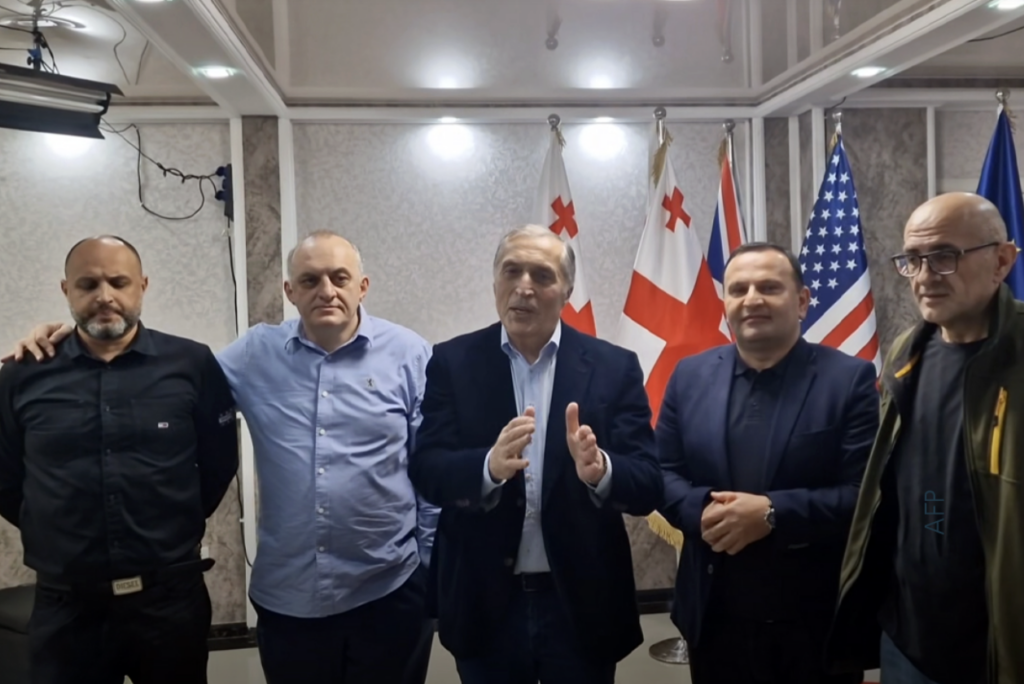
According to the Interior Ministry, those detained are charged with calling for the violent overthrow of the constitutional order and organising and leading acts of group violence.
These offences carry prison sentences of up to nine years.
The rally on Rustaveli Avenue gradually dispersed overnight. Police used water cannons and tear gas on the avenue as well.
Government announces new wave of repression
Georgian Dream`s prime minister Irakli Kobakhidze said that 4 October marked “the failure of a fifth attempt to stage a ‘National Maidan’ in Georgia” and warned that “many people should expect punishment”:
“Several people have already been arrested — first and foremost, the organisers of the attempted coup. I want to remind everyone that no one will go unpunished. We have more resources to identify the perpetrators than we did last year or the year before. Many people should therefore expect to be punished for the violence they committed against the state and law enforcement. The law will be applied to them very strictly,” Kobakhidze said.
Interior minister Gela Geladze also announced further arrests.
Kobakhidze commented on the election results as well, claiming that the ‘deep state’s’ plan to replace the United National Movement with Lelo and For Georgia had failed.
“These two parties are practically finished,” he said, pointing to their poor performance in the 4 October local elections and Georgian Dream’s “convincing victory.”
On 5 October, Kobakhidze told a press briefing that the government also planned to “neutralise” what he called members of the “collective United National Movement”, including:
- “All foreign agents who are unsettling this country”;
- “Extremist groups operating under the instructions and with the funding of foreign intelligence services, including one of the universities hijacked by Saakashvili’s family” (a reference to the University of Georgia, which Georgian Dream has accused of promoting radicalism);
- Organisations such as Fari and Ertoba, which he also labelled “extremist groups.”
Political reactions
Opposition politicians announced that peaceful demonstrations on Rustaveli Avenue, where thousands gathered yesterday waving Georgian and EU flags, would continue today.
Former president Salome Zourabichvili, who has become a symbolic opposition figure, sharply condemned the incident at the presidential palace:
“This farce of storming the presidential palace could only have been staged by the regime itself, to discredit the Georgian people’s 310 days of peaceful protest,” she wrote on X.
The Coalition for Change said in a statement that it considered setting a “revolution deadline” unjustified and that the struggle must continue:
“We believe that victory lies in dismantling the regime, not in creating inflated expectations for a specific date. This dismantling will come through constant isolation of the authorities, non-cooperation, non-recognition, increased international pressure and, above all, continuous protest — including strengthening the protest base on Rustaveli Avenue. Today, as always, we’ll meet there at the usual time.”
The Federalists party also called on its supporters to join the demonstration:
“Tonight at 8 p.m., the Federalists will be on Rustaveli, at our usual spot. The protest continues,” wrote party leader Tamar Chergoleishvili on social media.
The political platform Freedom Square said the struggle must go on and that it had “a clear strategy” for continuing it. It criticised the 4 October organisers for “acting against the interests of the protest and endangering demonstrators.”
“We believe there is no place for irresponsibility in our shared resistance or in Georgian politics. Once again it has become clear that, for democratic resistance and protest to succeed, new civic and political organisations and leaders must take the lead. We are not afraid of Georgian Dream’s future repressions — we have a clear strategy for success and we believe in final victory,” the statement read.
Commentary
Political analysts agree that 4 October may deepen frustration among opposition-minded voters, intensify the crisis and lead to an escalation of government repression.
They say that a country once seen as a post-Soviet “success story” is now drifting further from Europe and facing growing isolation.
Georgian Dream retains full control of power but is losing public trust. With the opposition unable to fight through institutions, the streets have become the only remaining space where dissent can still be expressed.
Tamta Mikeladze, head of the Social Justice Center:
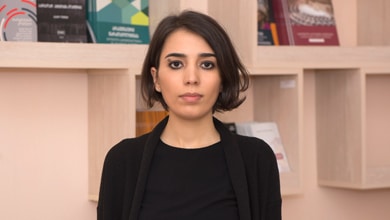
“Opposition forces pursued two different political strategies — and both failed. That was predictable.
It was clear from the start that a fragmented opposition, with one part taking part in the elections while the other worked against it, would struggle to succeed even in the big cities.
The idea of a so-called ‘peaceful revolution’ launched and ended on 4 October by a few eccentric leaders was absurd, unserious and dangerous from the very beginning. These attempts were bound to trigger harsher repression, the marginalisation of the protest movement and a deeper sense of political nihilism — and it didn’t take much foresight or political experience to see that coming.
A de-institutionalised, repressed, exhausted and fragmented opposition is now entering an even deeper crisis. Still, this may finally open space for a genuine discussion, as the lack of strategic thinking might push people to reflect and rethink their approach.
In short, everything ended badly — or rather, just as previous opposition efforts in Georgia have ended, until new and powerful political forces emerged.
Such forces could come from geopolitical developments or from major reconfiguration and renewal within our political spectrum. At this point, we have neither.
Now the political class, civil society and the media must think seriously about what kinds of strategies are needed for the future. We are entering a very harsh winter — and not just the one on the calendar.
At the same time, it would be wrong to say the political regime is strong and confident. It remains deeply vulnerable — geopolitically, politically and morally.
Perhaps the most inspiring thing today was the resilience and endurance of our people, their ability to sustain peaceful resistance for so long.
This gives us hope that democratic energy and discipline among Georgians will not easily fade — but they must be protected from new waves of frustration.”










